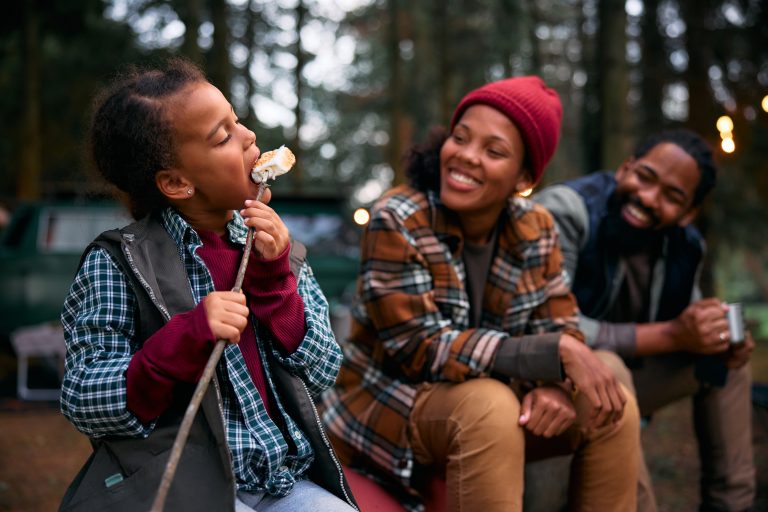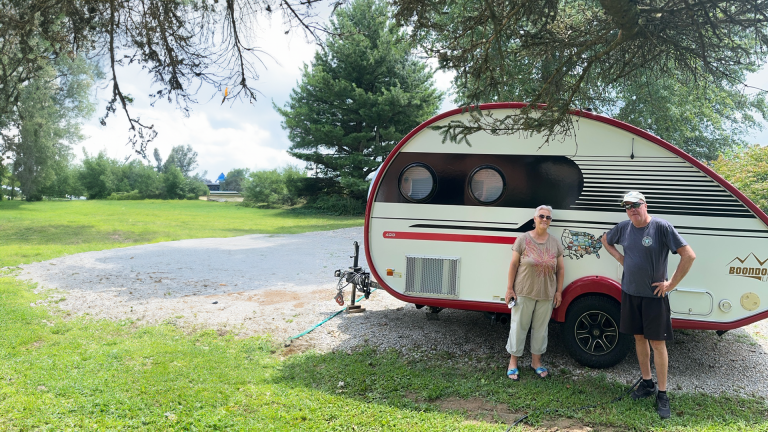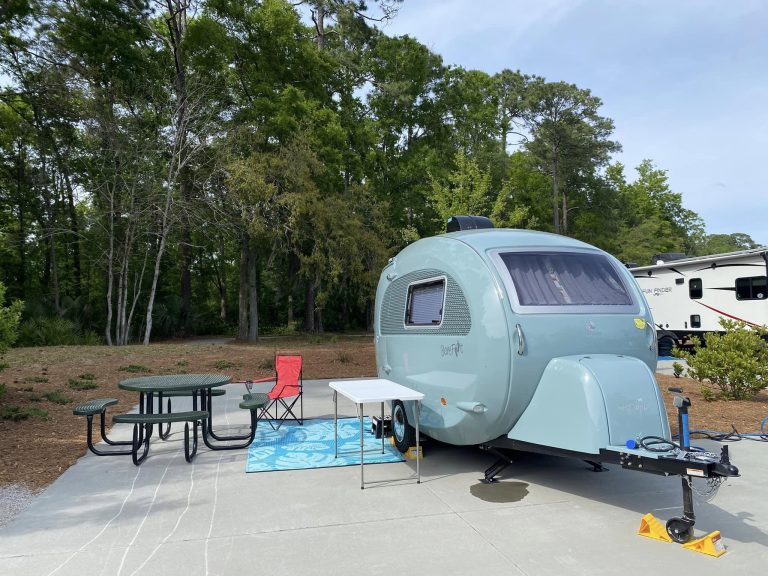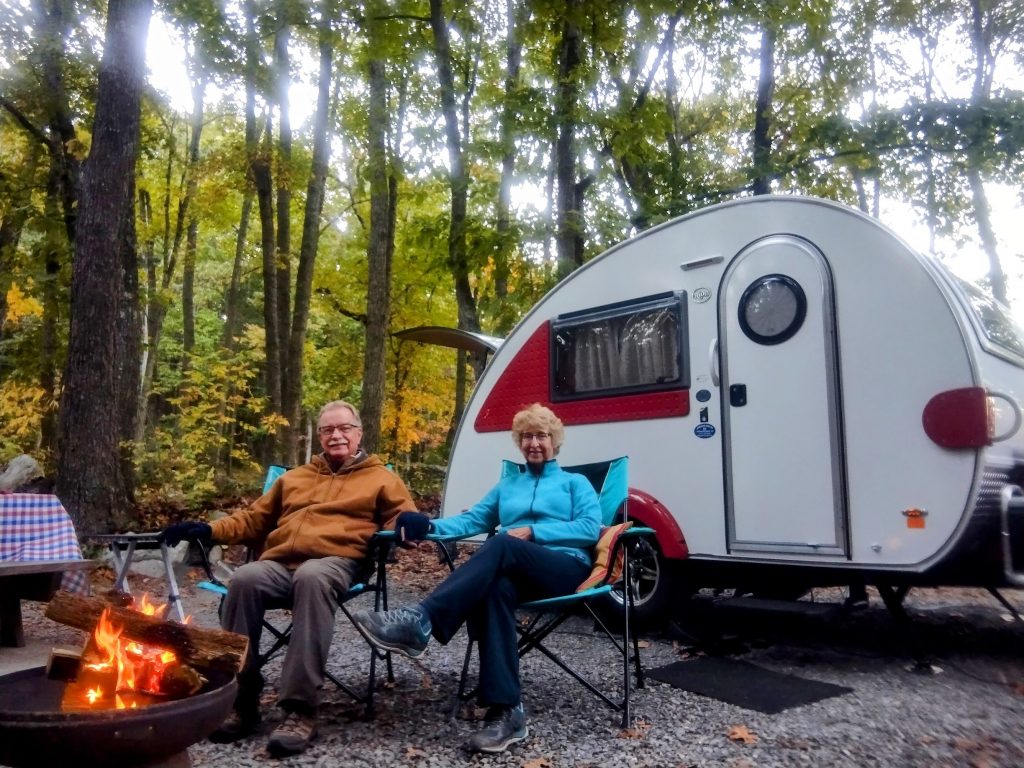Just because you’re fifty, sixty, or maybe even seventy-plus doesn’t mean that you can’t hit the road with your camper and see what the country has to offer. That being said, it’s wise to take some practical concerns into consideration to ensure that the trip is both enjoyable and safe!
We spoke with Archie and Shirley Wilkins, who recently celebrated their golden wedding anniversary by leaving their Pennsylvania home in August for a 50-day cross-country road trip. Even though they are seasoned travelers, having spent the past 50 years on the road with either a tent or pop-up camper before upgrading to a TAB CS, they knew that they needed to prepare a bit more than they did in their younger years.
“When we were younger, we never really gave much thought to our health,” admitted Shirley. “It’s just something young people seem to take for granted. But for this trip, we did a lot of pre-trip preparation.”
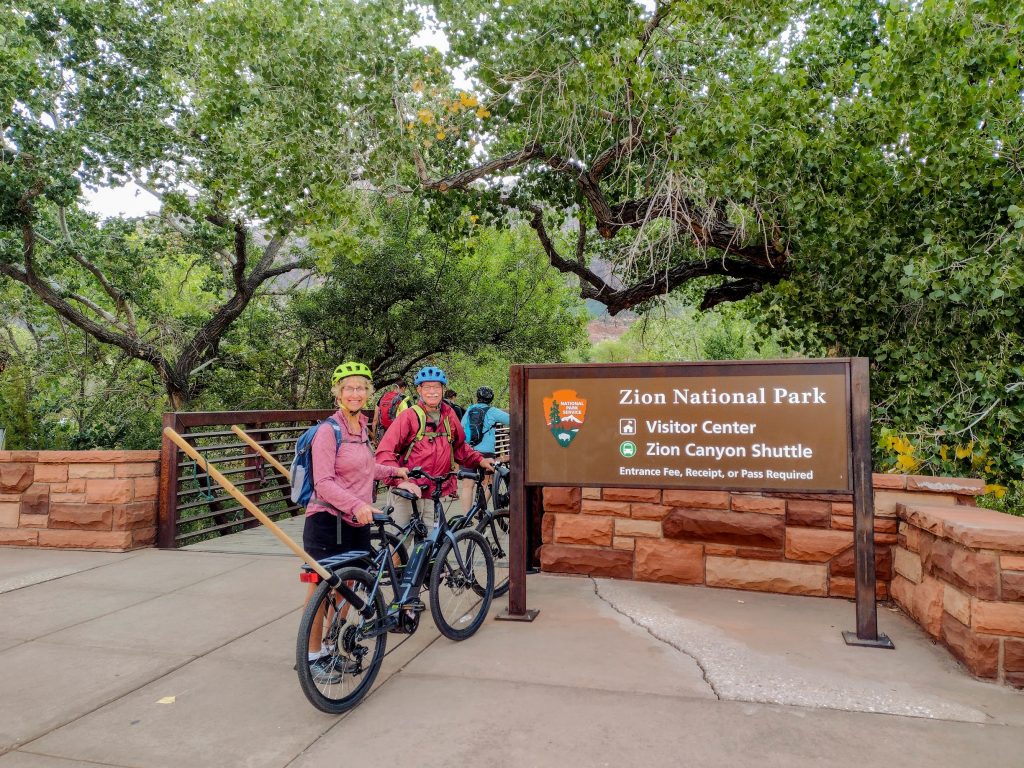
Prepare for your trip
One way the couple prepared was to make sure they had enough water on their desert hikes. A few times a week in early spring, they hiked a local mountain trail with backpacks loaded up with water to get used to the extra weight. They also went to the gym several times a week to do weight training in addition to the normal bike riding the Wilkins enjoy together.
Since their itinerary would involve a significant change in altitude — from 400 feet in their home state to 8000-plus feet — they also allowed time in Colorado to give their bodies time to acclimate. “We were glad we did that since it prevented the altitude sickness some people experience,” noted Shirley.
Finally, the couple made a stop at their doctor’s office for advice and any needed prescriptions. The couple opted for a healthy diet and added vitamin supplements to help them maintain a strong immune system.
Plan for emergencies
With those tasks in place, the couple also did a little “worst-case scenario” strategizing, following Archie’s advice of always having a plan to cover the “what if’s.” He purchased the Garmin GPSMAP 66i, giving them GPS along with the capability of emergency contacts — an important precaution since there would be little cell phone coverage in the areas where they would be traveling, especially on the back roads and hiking trails they wanted to explore.
“We set it up with family members as our contacts back home,” explained Archie, adding that the unit also enabled those listed as contacts to see exactly where they were. “I would recommend that to people who are going to be driving or doing any activity where there will be no way of contacting someone if needed. Have a plan for emergencies and be sure to give someone back home your itinerary.”
Once out on the road, Archie advised travelers to always be aware of their surroundings.
Be flexible and ready to “go with the flow,” while resisting the urge to try to cover too much ground in a short amount of time, said Shirley.
“We tried to go with the 3.3.3 plan we learned about in the TAB Facebook group: drive about 300 miles per day, be at the camp by 3 p.m., and stay at least three days in one place. We didn’t do it perfectly but having that as our goal served us well and I recommend it. Finally,” she added, “be open and friendly and never be too much in a hurry to not have a conversation with someone.”
Shirley’s last piece of advice applies whether you are heading out on the road or just to your backyard. “Since we are older, we are more aware of our health and try to do what we can to keep our good health. Stay active, whether you’re taking a trip or not. Eat healthy food. Keep your brain engaged by reading about the places you will be visiting. And don’t wait for retirement if you aren’t already retired to travel if that’s a goal. You never know what tomorrow will bring.”
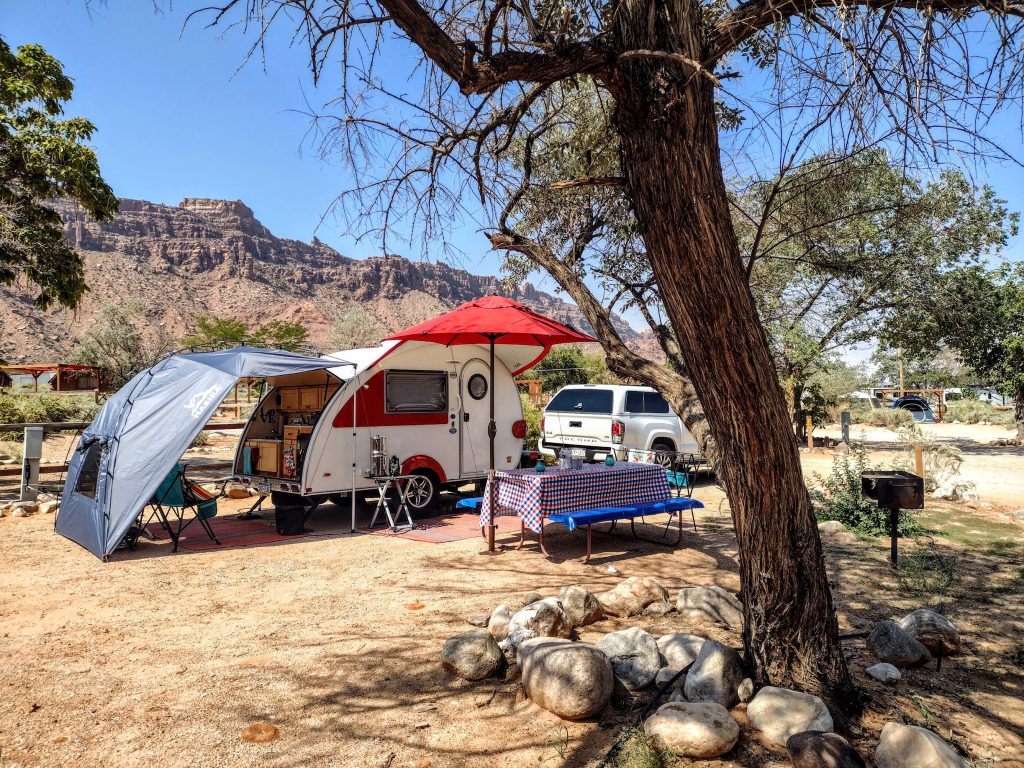
Other tips
° Have a practice run before setting off on your trip, especially if you are a new RV owner.
° Provide family members with your itinerary so they know where you are and when you expect to move to the next location or return home.
° Do plenty of research on the areas you’ll be exploring or camping at so you know what to expect and can be prepared.
° Check the weather beforehand and do not go out on trails if inclement weather is expected.
° Download helpful apps such as weather-related, health, or emergency apps.
° Be prepared for no cellphone service by having a GPS or apps that work without a cellphone signal.
° Bring a first aid kit with you.
° Know your limits! Don’t push yourself on difficult trails or over-exert yourself when out exploring and enjoying nature. Take frequent breaks and pack lots of water and some snacks!
Recent Articles

